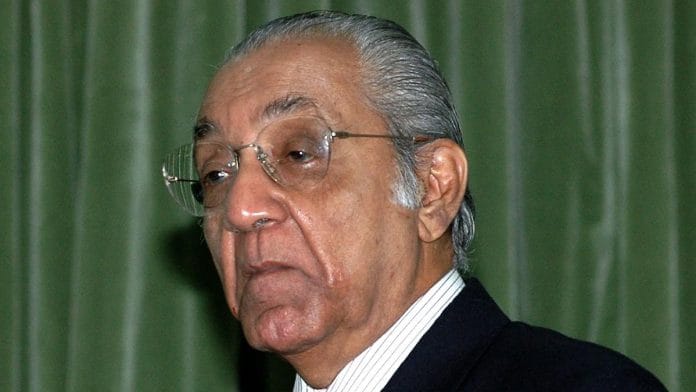As a first-time author, it would have taken some temerity to send AG Noorani a copy of my book on free speech and media law, titled Facets of Media Law, when it first came out in 2006. I did not. A scholar par excellence on free speech among myriad subjects of constitutional importance, Noorani was a hard man to please. His candor could be caustic and was famously known to have cut many legal luminaries to size. So, I was taken aback to receive a call from Tehmtan Andhyarujina, former solicitor general of India, who said that he had chanced upon Noorani’s review of my book in the Frontline. As a fledgling author, the news that Noorani had reviewed my book was somewhat unsettling. But Tehmtan soon revealed — and I may be excused a little vanity here — that my book had won some praise from Noorani. He had chanced upon my book on the bookshelf of a journalist friend and asked if he could borrow it for review. The early encouragement from an unexpected quarter, and a very exacting one at that, is a debt I will always owe him.
AG Noorani is well known for his writings on Kashmir and Hyderabad, both of which were vital stories in the challenges to the unification and political integration of India. Both works are tirelessly researched and the commentaries incisive. While he was deeply critical of the role of the State, one gets a deep insight into how hard-fought the making of India was — great sacrifices made and heavy prices paid to stitch the grand Union together. One realises how easily balkanised the states that eventually made India might have been. Among the range of subjects of contemporary and continuing relevance Noorani wrote on was free speech, a subject close to his heart and one that sits at the core of the Constitution. His publications include writings on hate speech, sedition, unlawful detention, film censorship, dissent, and the impact of technology on free speech. He remained a fierce critic of film censorship in India, which, in his words, “reeks of unconstitutionality because of its arbitrariness and continuing stranglehold of the Government of India..” His thoughts resonate today when OTT platforms have taken centre stage, rendering the prevailing regime on film certification and censorship anachronistic. His views criticising the control of electronic media are also relevant in the context of the current debate on censorship in broadcast media and political content published on digital platforms.
On defamation, religion, free speech
Noorani’s views on religion and free speech are thought-provoking, even if debatable. In the aftermath of the infamous Danish cartoon controversy, he favoured combating the caricature of religious figures by passing laws on the defamation of religions. The law protects the esteem and reputation of living persons, not gods, prophets, or religious beliefs. The truth of the imputation is a valid defence to a charge of defamation. How could such a defence be made workable in the case of criticism of a mythical figure, and how would the fine line between justifiable criticism and defamation be drawn in matters of religion?
Noorani was rightly critical of the overuse of the power of contempt of court. He believed that the bar to truth as a defence to a charge of contempt made the law unconstitutional. A person could not risk criticism without the fear of being sent to jail, notwithstanding the truth of his publication. In 2006, the bar to truth as a defence was removed. In times when judicial proceedings are live-streamed to the public and commented upon in real-time on social media, the law of contempt has become increasingly irrelevant and unworkable.
Noorani rued what he described as “the bane of Indian society for centuries” — the intolerance of dissent. He rightly advocated the ready acceptance of the right to dissent rather than its tolerance. That, according to him, was the hallmark of a truly free society. He quoted Justice Oliver Wendell Holmes in support of the active acceptance of the right to dissent: “Liberty not to those who agree with us; but freedom to the idea that we hate.”
Noorani’s books and commentaries are a treasure trove that serves as a chronicle of the legal, political and constitutional history of India straddling several decades. He was that rare lawyer who dedicated his life to scholarship. In the legal fraternity, a firmly held belief is that successful courtroom lawyers do not find the time for academic endeavors and those who do will be written off as practitioners. AG Noorani is unlikely to be remembered for his courtroom skills. But he will live on through his inexhaustible and invaluable scholarship. For a person of his ability to have given up the quest for a lucrative practice at the Bar and devoted his life to producing tomes of scholarship for posterity is a debt that the nation will forever owe him.
Madhavi Divan is Senior Advocate, Supreme Court. Views are personal.
(Edited by Humra Laeeq)






